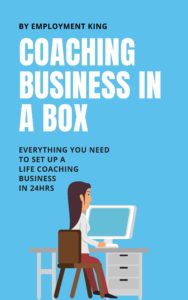There’s a love-hate relationship with job interviews. We love that we have the chance to prove ourselves to a new employer, and hopefully get a new position with a big new salary…but we hate the job interview process; its scary, horrific, terrifying!!!
This series of job interview articles will teach you how to pass your next job interview by explaining how to answer each tricky job interview question
How to Answer “did you get on with your last manager”
An interesting job interview question, right? You have two possible answers, you can answer “yes” or “no.” I will explain both options, teaching you how to respond to the “did you get on with your last manager?” job interview question depending on your situation.
First thing first, some of you who didn’t get on with your last manager are thinking – can’t I just lie?
Tempting isn’t it? But don’t do it. Humans, well most of us, don’t lie easily. When we do fib, we show our deceit in our subconscious actions; a touch of the face, blushing, an increase in filler words, how you structure your sentence varies. Your interviewer won’t necessarily know all of these tells, but at some level, they will sense that something isn’t right with your answer, creating doubt in their opinion of you
How to Answer the Interview Question
First I will explain how you handle the interview question “did you get on with your last manager?” if you didn’t get on y[with your previous boss?
Let’s say you worked for someone that you just didn’t get on with. Let’s say that you hated your last manager – how do you handle the job interview question?
The first step is to analyze your manager; even if you disliked your manager on a personal level, there has to be something about the manager that you saw as a strength or a positive personality trait or maybe you didn’t approve on their management style but you like their temperament or vice versa.
The second step is to frame your answer; when asked this job interview question, it is often out of the blue as most job applicants don’t expect to be asked a question like this. This results in interviewees starting their answer with “well, erm, he was OK, but, well, you know, he did a good job at ….” This sketchy start will kill your interview credibility. You need to answer this question with confidence and assertiveness:
“The main thing I liked/admired about my last manager was…”
“My previous manager had a (add your own answer here – example; highly organised approach that ensured the project was completed on time)….”
“I worked for my previous manager for X years I learned several things that helped me in my career, the main one being…”
This tactic is powerful because there is no need to lie. You are framing the answer as a positive, using a truth but without actually saying that you “got on” with your previous manager. Because your job interview answer is clear and assertive, the interview won’t realise that you have sneakily sidestepped the job interview question
If you did get on well with your previous employer, then this interview question is easy to answer. But rather than using the same old rubbish, most interviewees use “yes we got on great with each other!” you can answer this interview question that makes you sound amazing
Step 1 – confirm loyalty; start by stating the respect you had for your previous manager. The interview that asks this question desires a good relationship with their team and will want a similar situation to what you are describing with their new team member. “I have a lot of respect for my previous manager, she was the kinda manager who praised you when you did something well and pulled you up when you made errors…”
Step 2 – share success; give an example of collaborative working, to highlight how you worked well together. “…last year we worked together on a project…” When giving an example; state the problem the business faced; the action you took; and the positive outcome.
Step 3 – discuss regret; after the example, summarise your interview answer by sharing your regret for leaving your current position. “it’s a shame to be leaving the company but it’s time to move on and I’m excited to be working for an organization like this”
Job Interview Advice














